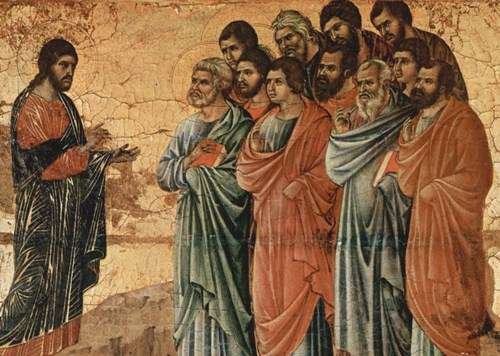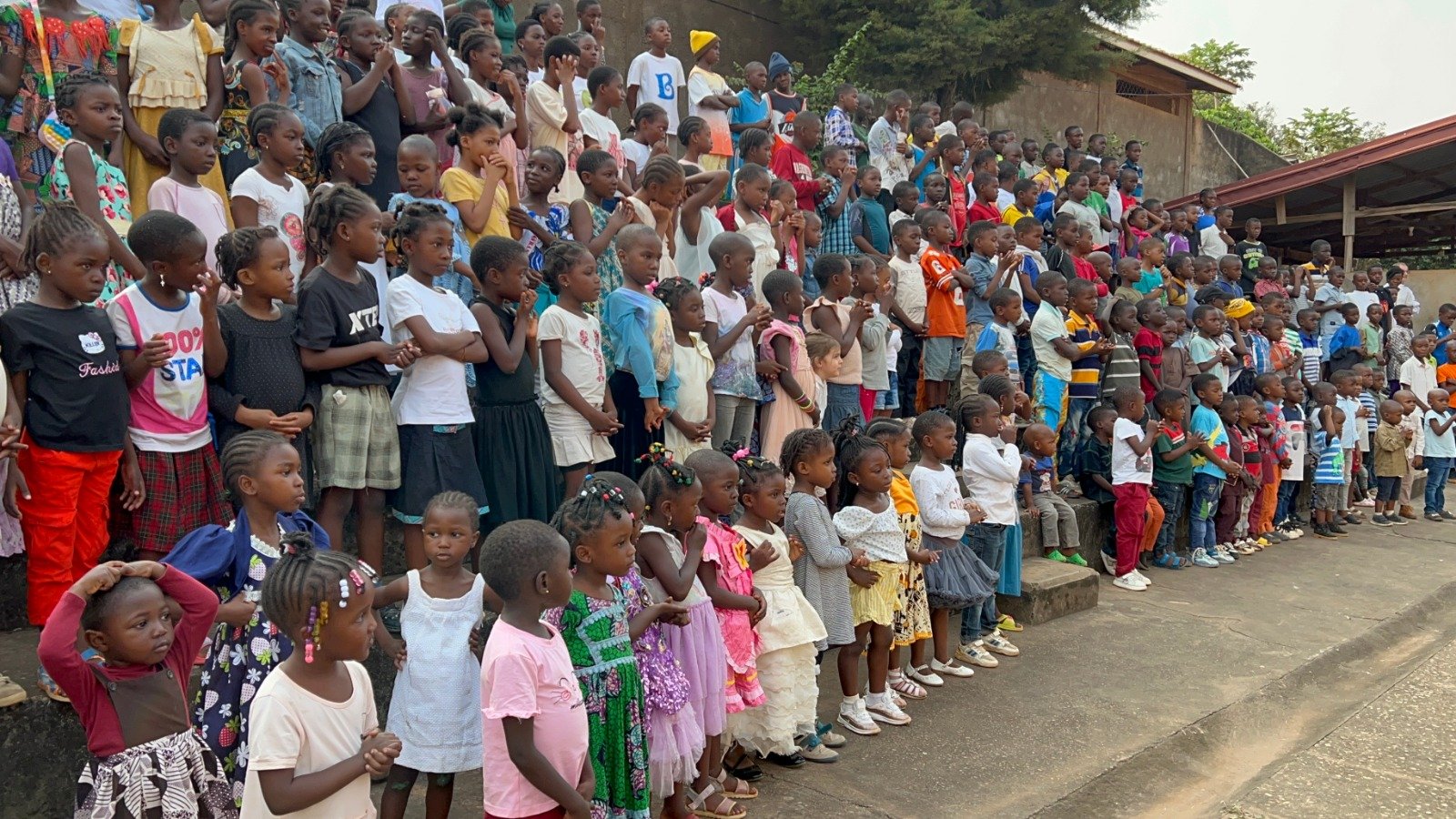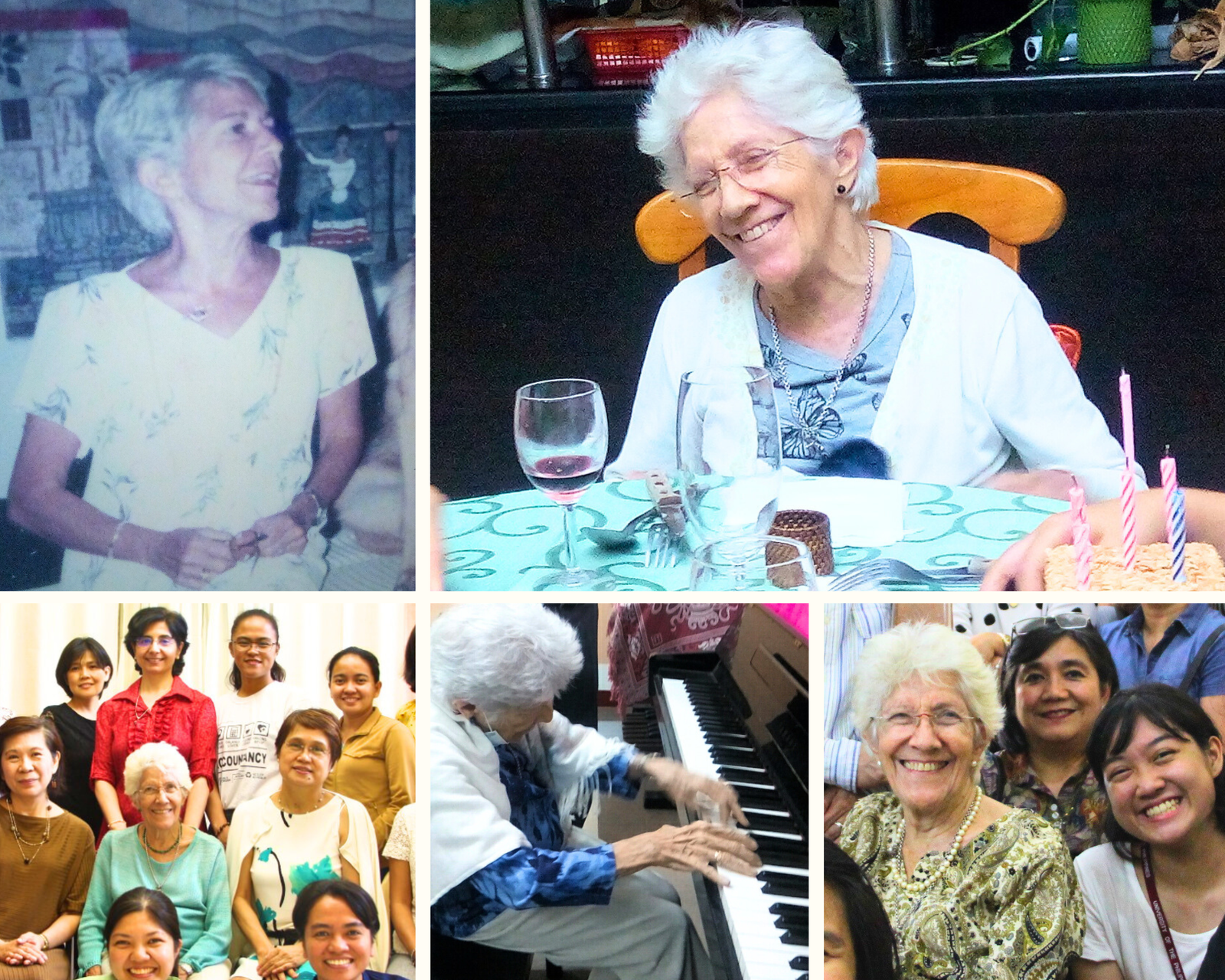
By F. Luis Casasús, General Superior of Idente missionaries
Commentary on the XXIV Sunday in Ordinary Time, September 16 2018, Paris.
(Book of Isaiah 50,5-9a; Letter of James 2,14-18; Saint Mark 8,27-35)
A popular and fashionable answer to the question about human life (or life in general) is that life is…information.
Cells carry genetic information in packages of DNA called chromosomes. This explains many aspects of evolution and disease, but of course, the concept of life is more than biological, social, moral or psychological. Even more, we should understand the term “life” and the concept of “person” beyond the individualistic perspective and this is the focal point of today’s Readings.
Let us not fool ourselves; Jesus is asking Who do people say that I am? but his main interest is to reveal us who we are. The original question was answered by Peter’s inspired intervention, but to be true to our identity, we need to experience the cross and to go through the processes described by Isaiah and James. This is not just something of intellectual interest, but a life path which gradually gives us perspective and steadfastness. Jesus Christ wanted the disciples to know well His identity as Messiah and Suffering Servant, because they were supposed to take Him as a model for their lives.
We cannot understand our true nature and the plans of God without immersing ourselves in a constant interaction with the divine persons. As St. Paul said to the Corinthians: For the Spirit searches everything, even the depths of God. For what person knows a man’s thoughts except the spirit of the man which is in him? So also no one comprehends the thoughts of God except the Spirit of God (1Cor 2, 10-11).
Usually we do not have the foresight to penetrate deeper into the mystery of God’s plan:
There were three young trees growing together in the forest. They were young, healthy, and ambitious. They compared their dreams. One wanted to be part of the structure of a castle or a palace, so it would be a spectator in the lives of the high and mighty of society.
The second wanted to end up as the mast in one of the tall ships, sailing around the world with a great sense of adventure. The third hoped to end up as part of some public monument, where the public would stop, admire, and take photographs. Years passed by, and all three were cut down.
The first was chopped up, and parts of it were put together to form a manger for a stable in Bethlehem. The second was cut down, and the trunk was scooped out to form a boat, which was launched on the Sea of Galilee. The third was cut into sections, two of which were put together, to form a cross on Calvary..
The First Reading lays the basis for understanding the nature of our existence: we are not alone. We can say with the psalmist: I will walk in the presence of the Lord in the land of the living. And Isaiah gives a powerful description of His presence in the most stressful situations: The Lord opens my ear that I may hear…The Lord God is my help, therefore I am not disgraced…He is near who upholds my right.
This is very relevant, because our reactions to suffering situations are feelings of sadness, anxiety or strong inner tension, which can also be very strong for a limited time.
In general, our response will be predominantly one of the following:
Avoidance. Using avoidance to deal with stress will prevent you to learn from difficult situations. Fleeing from stress just makes you more worried when stress reappears and anxiety will increase. Delusion and other defense mechanisms like justification, are the standard tools for avoidance.
Attack. If attacking is your habit, you will find yourself dealing with the original problem… and the extra ones brought on by your aggressiveness and rebellion. This was the case of St. Peter described in today’s Gospel; none of us wants others to suffer, so initially he just could not accept the truth revealed by Jesus.
Distraction. Food, pointless or unnecessary entertainment, drugs or shopping, may provide instant gratification but postponing our response is always dangerous.
Worst of all, it is easy to see that these reactions will deteriorate our relationships with God and our neighbors. Especially when the contrariety comes from a collision with the will of God or as a result of a misunderstanding. We do not have a divine perspective and even with the best will, over and over we see everything from a worldly point of view: after his confession of Jesus as the Christ, Peter was told by Jesus, you are a blessed man, and the next minute Jesus had to rebuke him: Get behind me, Satan… the way you think is not God’s way but man’s.
The Second Reading goes still further into the effects of God’s presence in our lives. He is there for more than just protect us from shame and disgrace. Faith in Him leads us to always new challenges and opportunities to love our neighbors. Each act of love nourishes our faith and this interplay between faith and true love provides meaning and direction to our lives. It is the only way we can be truly authentic to ourselves. This is why regarding the old debate on the relationships between faith and works, C.S. Lewis said that it looks like asking which blade in a pair of scissors is most necessary.
When we are open to the stirrings of the Holy Spirit, we discover that true joy can only come from a true oblation.
Why do superheroes are so attractive in popular culture? Superman, Batman, Wonder woman, Spiderman, The Guardians of the Galaxy… What their fans celebrate is the ability of these heroes to transcend the limitations imposed on us, be it our self-centeredness, fears, or our capacity for evil. This has been analyzed many times. We aspire to their noble impulses and heroic acts. We would like to identify with them. Superheroes are models for us, and they are modeled after us. The important point here is that all these characters devote their extraordinary skills to help others. In real life, we have many limitations to do it properly: our partiality, lack of energy, pride and personal concerns prevent us from living an unlimited love and generosity.
Jesus’ invitation is not fiction: Whoever wishes to save his life will lose it, but whoever loses his life for my sake and that of the gospel will save it. The key is that only He can be the Way to tell us how to give up our life. And this means to die to the false images we have of ourselves. Otherwise, sooner or later we will be a sad example of Christ’s remark: What profit does a man gain if has the whole world but loses his own soul? He himself, was a living example, rejecting the kind of glorious Christ his disciples thought He should be. To make us understand what life is really all about, we could make a visit to four places that will help us to walk in the presence of the Lord: the hospital, the prison, the cemetery and the heart of our neighbors.
Carrying the cross means to follow the will of God despite the fears and inclinations that we cannot eliminate, just to bear the burden of it. But, as the Beatitudes and our personal experience teach us, even in (especially in) the sufferings, we experience God’s mercy.
————————————————————————————
Tips to make the most of the Holy Mass
- Collect Prayer. A Collect is a form of prayer by the priest which concludes the introductory rite of the Mass. It “collects” or “gathers up” all five parts of the prayer around one common theme. This theme is often taken from scripture, the liturgical season, or reason for the gathering for community prayer. Collects consist of five parts centering around a common theme. 1. Address to God 2. Characteristic of God (forms the basis of the petition) 3. The Petition (requests something of God) 4. The Desired Result 5. The Doxological Conclusion.
This is an example:
- Almighty God
- To whom all hearts are open, all desires known, and from whom no secrets are hid:
- Cleanse the thoughts of our hearts by the inspiration of your Holy Spirit
- That we may perfectly love you and worthily magnify your holy name
- Through Jesus Christ our Lord. Amen












